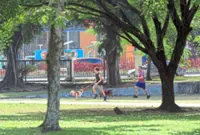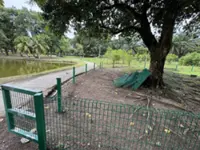COMMUNITY campaigns, house-to-house inspections and warnings will be intensified to reduce dengue cases in Klang, Selangor, which stood at 8,202 including three deaths in 2024.
Klang mayor Datuk Abd Hamid Hussain said the constituencies of Sentosa, Kota Kemuning, Sementa and Meru recorded more than 1,000 cases each.“We cannot allow this to be an annual trend.
Follow us on our official WhatsApp channel for breaking news alerts and key updates!
Thank you for your report!





